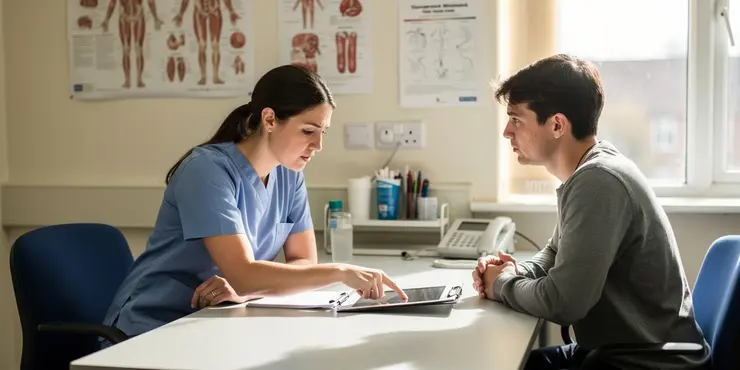
Find Help
More Items From Ergsy search
-
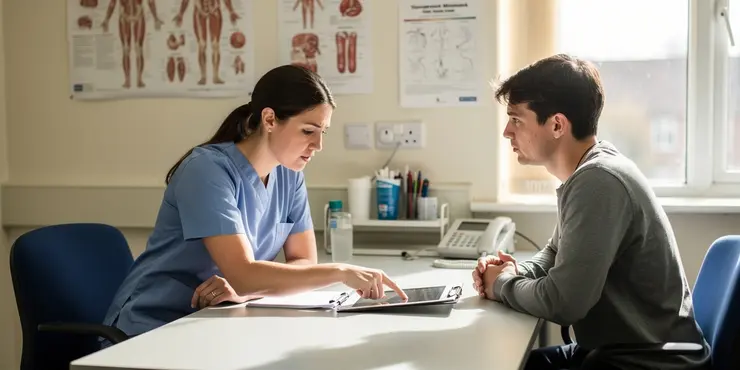
What causes bacterial meningitis?
Relevance: 100%
-
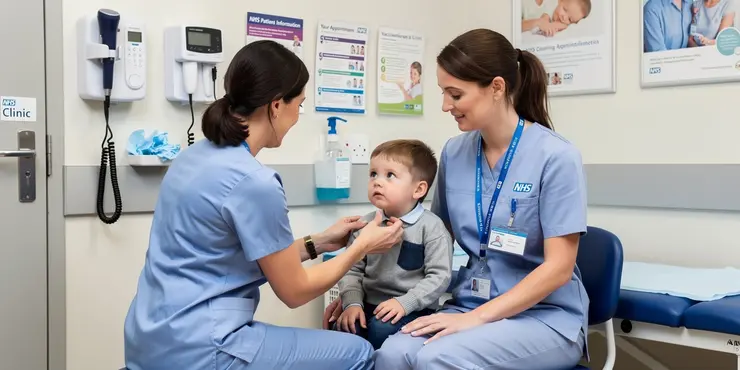
How serious is bacterial meningitis?
Relevance: 86%
-
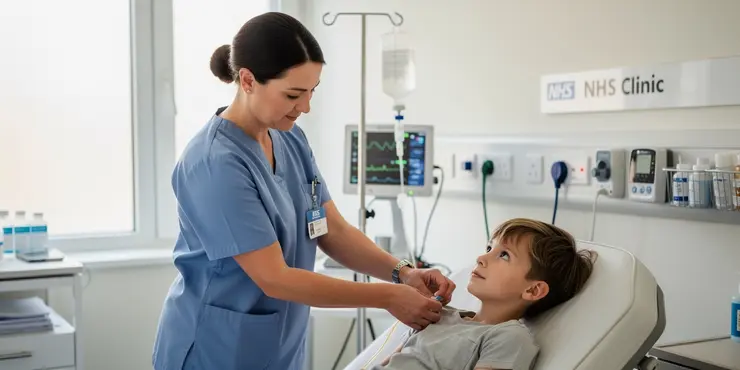
What is the treatment for bacterial meningitis?
Relevance: 85%
-
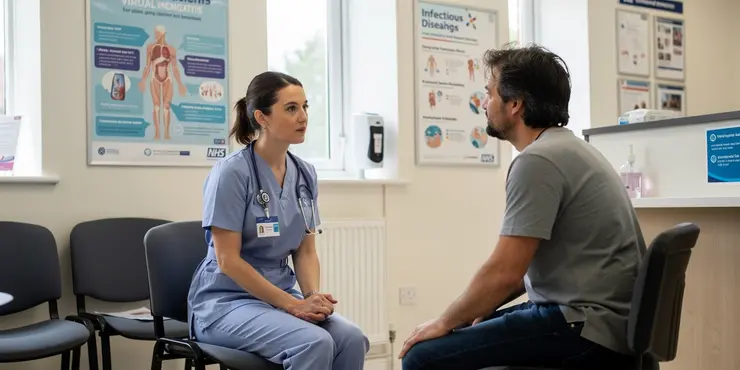
What causes viral meningitis?
Relevance: 70%
-
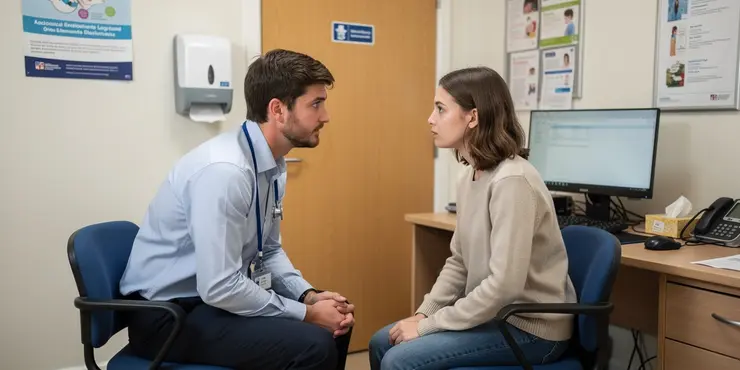
Can meningitis cause long-term complications?
Relevance: 70%
-

What is meningitis?
Relevance: 67%
-
Is meningitis contagious?
Relevance: 65%
-
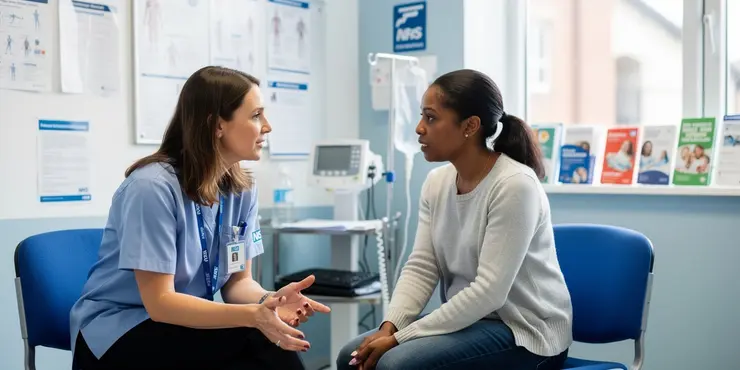
What are the main types of meningitis?
Relevance: 62%
-
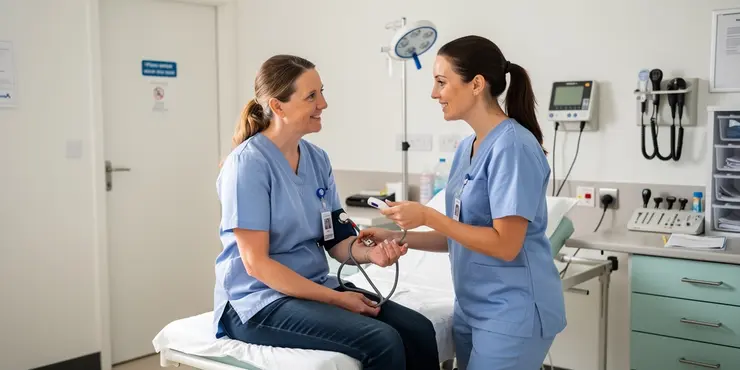
Why is meningitis a medical emergency?
Relevance: 60%
-
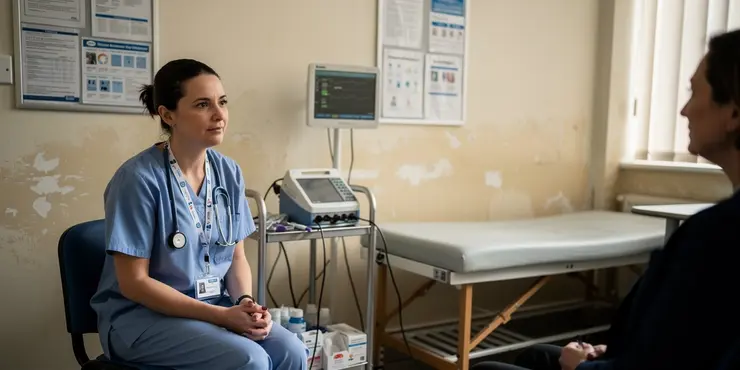
What is the prognosis for viral meningitis?
Relevance: 59%
-
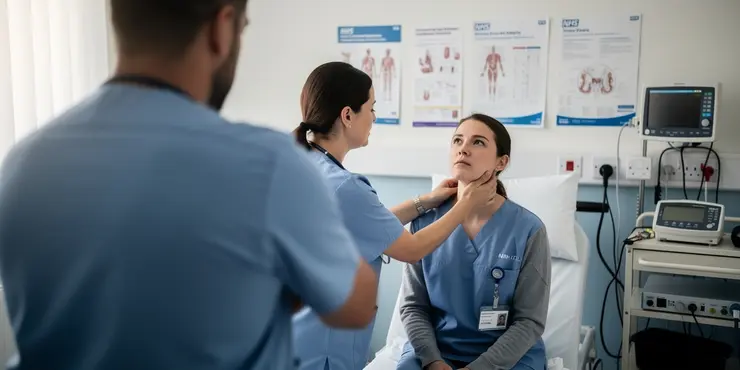
What are common symptoms of meningitis?
Relevance: 59%
-
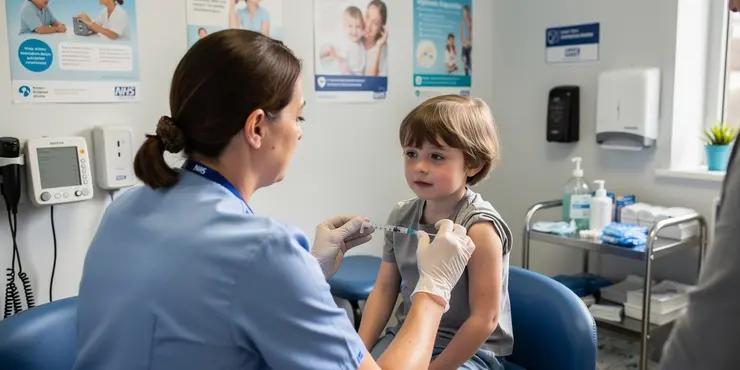
Are there vaccines for meningitis?
Relevance: 59%
-
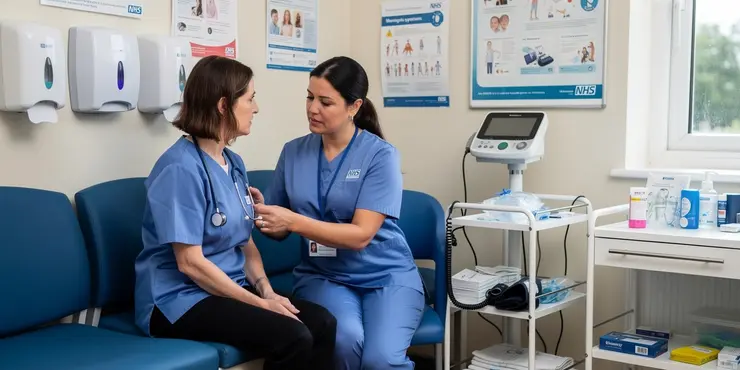
How is meningitis diagnosed?
Relevance: 57%
-

What is non-infectious meningitis?
Relevance: 56%
-

Is vaccination recommended for seniors against meningitis?
Relevance: 55%
-
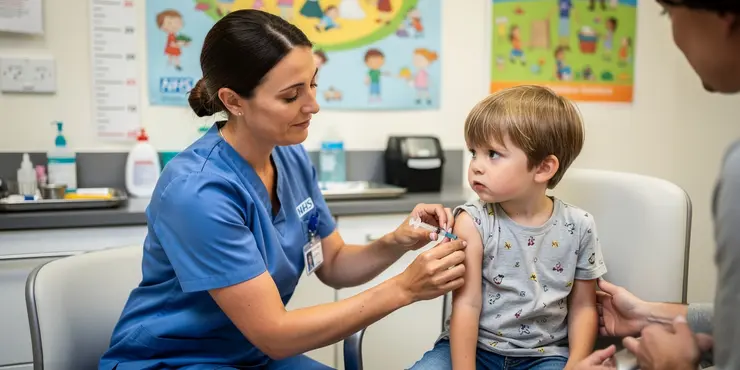
Who is at higher risk of contracting meningitis?
Relevance: 55%
-
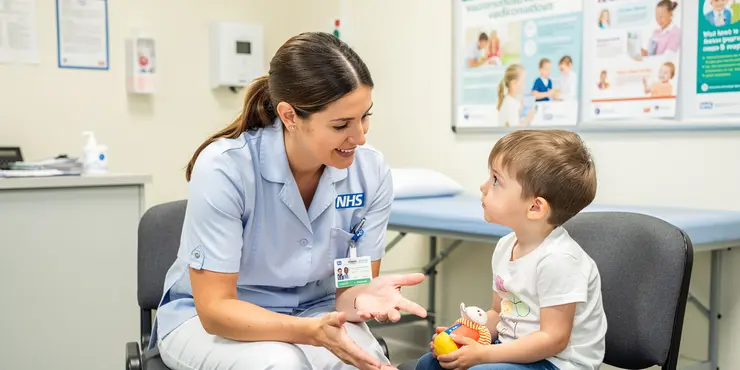
Can meningitis be prevented?
Relevance: 54%
-

Do people who have had meningitis in the past need to be vaccinated?
Relevance: 53%
-

What are the signs of meningitis in infants?
Relevance: 53%
-
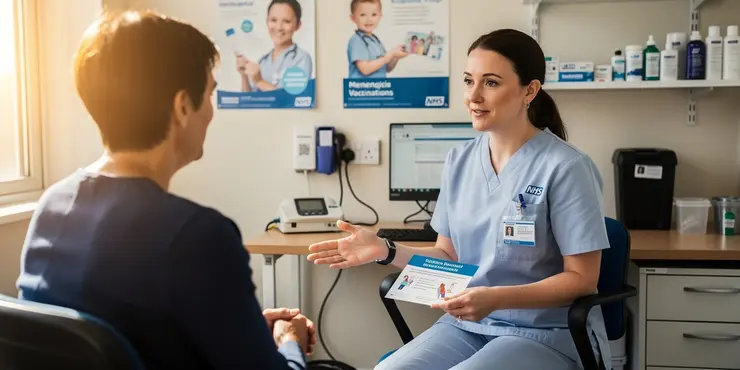
Are adults over 25 recommended for meningitis vaccination?
Relevance: 52%
-
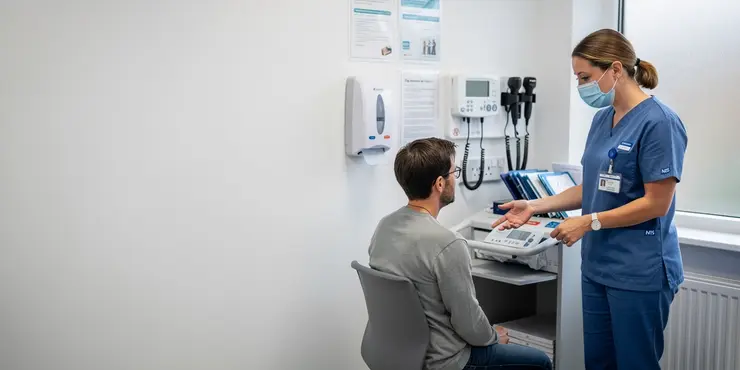
How is viral meningitis spread?
Relevance: 50%
-

Should health care workers get the meningitis vaccine?
Relevance: 50%
-

Does the CDC recommend meningitis vaccines for adolescents?
Relevance: 50%
-
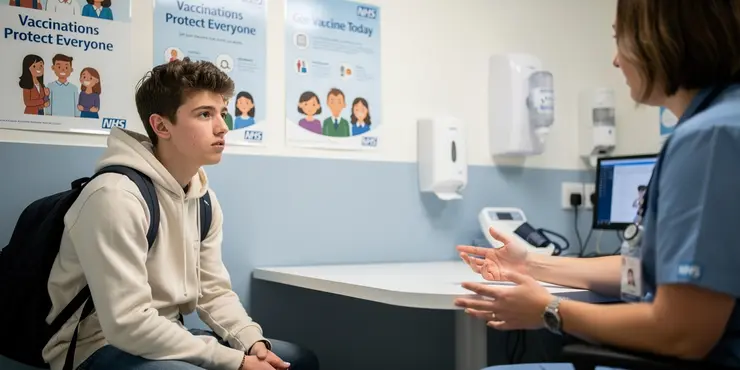
Should college students get the meningitis vaccine?
Relevance: 48%
-

Bacterial vaginosis
Relevance: 47%
-
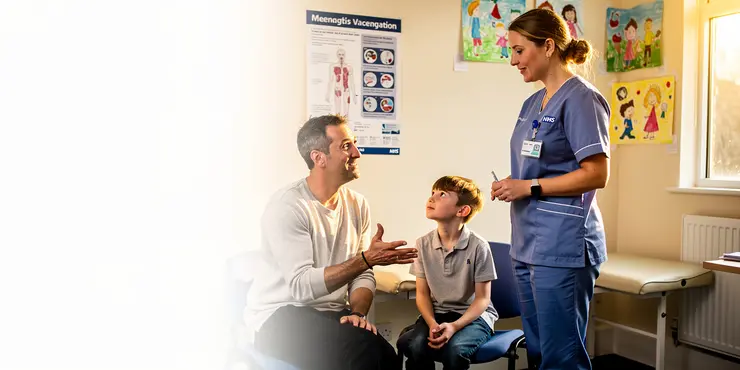
Who should get a meningitis vaccination?
Relevance: 47%
-

Are there any specific groups that should prioritize meningitis vaccination?
Relevance: 47%
-

Is meningitis vaccination required for military recruits?
Relevance: 47%
-

Do international students need the meningitis vaccine?
Relevance: 42%
-
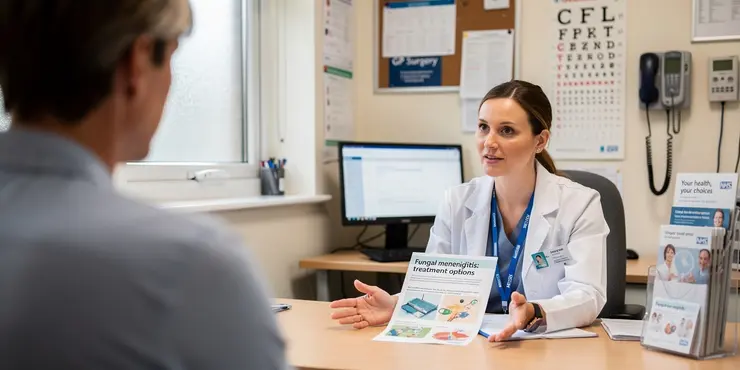
How is fungal meningitis treated?
Relevance: 42%
-
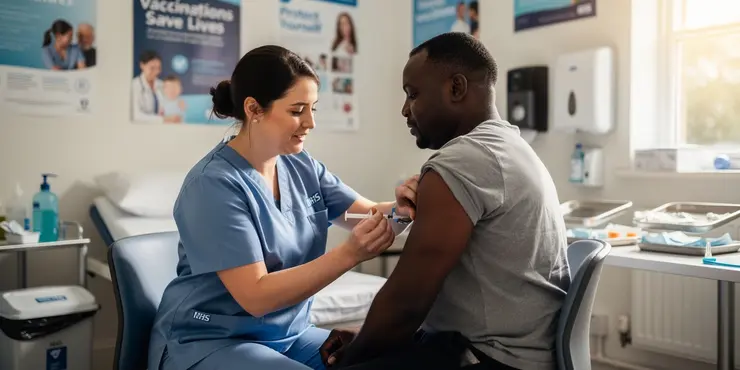
What are the guidelines for meningitis vaccination for HIV-infected individuals?
Relevance: 38%
-

Does refrigeration stop bacterial growth completely?
Relevance: 37%
-
Can bacterial infections be transmitted through blood transfusion?
Relevance: 37%
-
Can mosquitoes transmit any bacterial diseases in the UK?
Relevance: 37%
-
What are the meningitis vaccination recommendations for travelers to Hajj or Umrah?
Relevance: 36%
-

Causes of a sore throat
Relevance: 31%
-
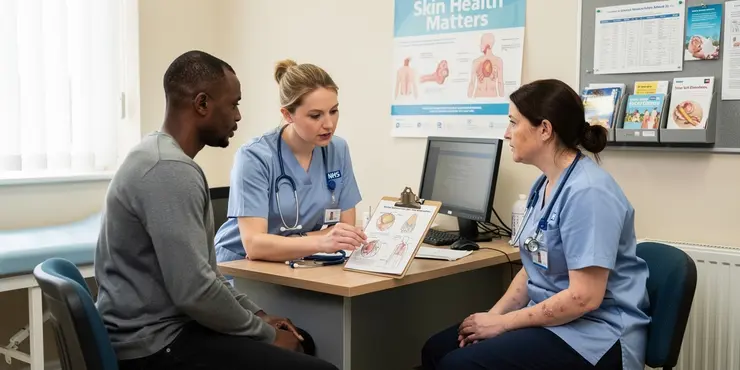
Can scabies cause complications?
Relevance: 28%
-
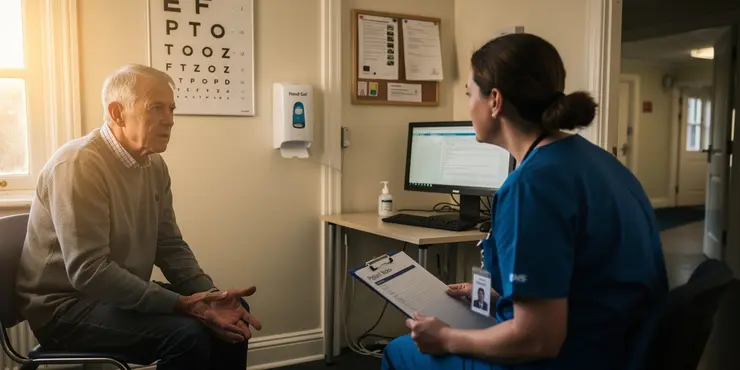
Causes of irritable bowel syndrome (IBS)
Relevance: 28%
-
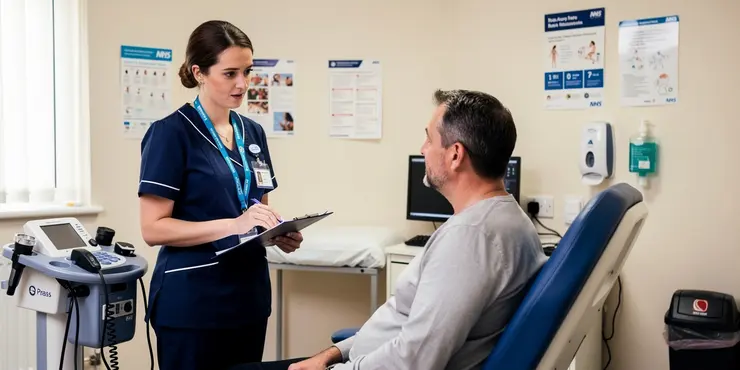
What causes flesh-eating disease?
Relevance: 27%
-
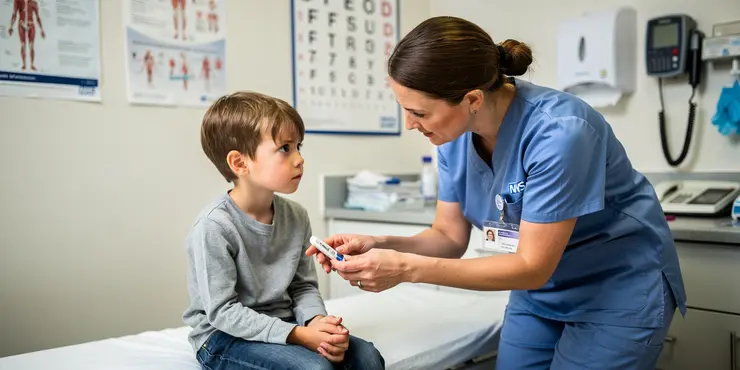
What causes appendicitis?
Relevance: 27%
What is Bacterial Meningitis?
Bacterial meningitis is a severe and potentially life-threatening infection that causes the inflammation of the protective membranes covering the brain and spinal cord, known as the meninges. This medical emergency requires prompt diagnosis and treatment to prevent serious health complications.
Causes of Bacterial Meningitis
Bacterial meningitis is primarily caused by pathogenic bacteria that enter the bloodstream and migrate to the brain and spinal cord, though there can be direct routes of infection through a severe head trauma, surgery, or contiguous spread from adjacent infections such as sinusitis or otitis media.
Common Bacteria Responsible for Meningitis
Several types of bacteria can cause meningitis, the most common in the UK being Neisseria meningitidis, Streptococcus pneumoniae, and Haemophilus influenzae. Each of these bacteria can lead to outbreaks in different age groups and settings.
Neisseria meningitidis (Meningococcal Meningitis)
Neisseria meningitidis, commonly known as meningococcus, is one of the leading causes of bacterial meningitis. It is particularly known for causing outbreaks in young adults, especially in settings such as universities. It is spread through respiratory droplets and requires close contact for transmission.
Streptococcus pneumoniae (Pneumococcal Meningitis)
Streptococcus pneumoniae is another significant cause of bacterial meningitis, particularly in infants and older adults. This bacterium commonly exists in the respiratory tract, and infections can follow from complications of pneumococcal pneumonia, ear infections, or sinusitis.
Haemophilus influenzae Type B (Hib)
Previously a common cause of meningitis in children under five in the UK, Hib infections have dramatically decreased since the introduction of the widespread vaccination programme. Despite being less common now, it remains a possible cause for unvaccinated individuals or in regions where vaccination rates are lower.
Risk Factors
Several factors can increase the likelihood of developing bacterial meningitis. Young age, especially infants, is at higher risk due to underdeveloped immune systems. Group settings, travel to countries with higher rates of meningococcal disease, and immunocompromised states also elevate the risk. Additionally, individuals with no spleen or a compromised immune system are more vulnerable.
Prevention Measures
Vaccination remains the most effective prevention strategy against bacterial meningitis. Vaccines are available for the major bacterial strains causing meningitis, including the meningococcal, pneumococcal, and Hib vaccines. Maintaining up-to-date immunisations and practicing good hygiene, particularly handwashing and covering the mouth when coughing or sneezing, play crucial roles in prevention.
What is Bacterial Meningitis?
Bacterial meningitis is a serious illness. It happens when the coverings around the brain and spine get swollen. These coverings are called the meninges. If you have this illness, you need to see a doctor quickly to get treatment. This helps to stop bad health problems.
Causes of Bacterial Meningitis
This illness is mostly caused by bad germs called bacteria. These bacteria can get into your blood and then reach your brain and spine. Sometimes, it can also happen after a bad bump on the head, surgery, or from nearby infections like ear or sinus infections.
Common Bacteria That Cause Meningitis
There are different bacteria that can cause meningitis. In the UK, the most common ones are Neisseria meningitidis, Streptococcus pneumoniae, and Haemophilus influenzae. Different germs can cause the illness in different people and places.
Neisseria meningitidis (Meningococcal Meningitis)
Neisseria meningitidis is also called meningococcus. It often causes meningitis in teenagers and young adults. This happens a lot where lots of people are together, like at universities. It spreads through tiny drops from coughs or sneezes, so you need to be close to someone to catch it.
Streptococcus pneumoniae (Pneumococcal Meningitis)
Streptococcus pneumoniae is another germ that causes meningitis, especially in babies and older people. This germ lives in the nose and throat. It can cause infections after problems like pneumonia, ear infections, or sinus infections.
Haemophilus influenzae Type B (Hib)
Before, Hib affected many young children in the UK. But now, because of vaccines, it happens much less often. Children who have not been vaccinated or live in places with fewer vaccines can still get it.
Risk Factors
Some things make it more likely to get bacterial meningitis. Babies are more at risk because their bodies are still growing strong defenses. Being in places with lots of people, traveling to countries with more meningitis, or having a weak immune system can also be risks. People without a spleen or with weak health defenses can get sick easier too.
Prevention Measures
The best way to stop bacterial meningitis is to get vaccinated. Vaccines help protect against the germs that cause the illness, like meningococcal, pneumococcal, and Hib. It is important to get your vaccines on time. Also, washing hands and covering your mouth when you cough or sneeze helps stop the spread of germs.
Frequently Asked Questions
What is bacterial meningitis?
Bacterial meningitis is a serious infection of the membranes covering the brain and spinal cord, caused by bacteria.
What bacteria commonly cause bacterial meningitis?
Common bacteria include Streptococcus pneumoniae, Neisseria meningitidis, Haemophilus influenzae, and Listeria monocytogenes.
How is bacterial meningitis transmitted?
It is typically spread through respiratory droplets, close contact, or through shared secretions from an infected person.
Who is most at risk for bacterial meningitis?
Infants, young children, teenagers, and older adults are at higher risk, as well as people with weakened immune systems.
What are the common symptoms of bacterial meningitis?
Symptoms include headache, fever, stiff neck, sensitivity to light, nausea, and confusion.
How quickly do bacterial meningitis symptoms appear?
Symptoms can develop rapidly, often within a few hours to a couple of days after infection.
Can bacterial meningitis be prevented?
Yes, vaccines are available for some bacteria that cause meningitis, and practicing good hygiene can help prevent the spread.
What role do vaccines play in preventing bacterial meningitis?
Vaccines can protect against certain types of bacteria that cause meningitis, such as Haemophilus influenzae type b (Hib), pneumococcal, and meningococcal vaccines.
How is bacterial meningitis diagnosed?
Diagnosis typically involves a physical examination, blood tests, and a lumbar puncture to test cerebrospinal fluid.
What treatments are available for bacterial meningitis?
Treatment usually involves prompt administration of intravenous antibiotics and sometimes corticosteroids to reduce inflammation.
What are the potential complications of bacterial meningitis?
Complications can include brain damage, hearing loss, learning disabilities, and seizures.
How does bacterial meningitis differ from viral meningitis?
Bacterial meningitis is usually more severe and requires urgent treatment with antibiotics, while viral meningitis is typically less severe and often resolves without treatment.
Can bacterial meningitis be fatal?
Yes, bacterial meningitis can be life-threatening if not treated promptly. Early diagnosis and treatment are crucial.
What are some risk factors for developing bacterial meningitis?
Risk factors include age, community settings, certain medical conditions, and travel to areas where meningitis is common.
Can bacterial meningitis occur more than once?
It's rare, but some people can suffer multiple episodes, especially if there are underlying health conditions or anatomical defects.
What should you do if you suspect someone has bacterial meningitis?
Seek immediate medical attention, as early treatment is crucial for recovery and reducing complications.
How can living conditions affect the spread of bacterial meningitis?
Crowded living conditions, such as dormitories or military barracks, can increase the risk of spreading the bacteria.
Are there any long-term effects of bacterial meningitis?
Some individuals may experience long-term effects like cognitive impairments, memory problems, or motor difficulties.
Is there a specific season when bacterial meningitis is more common?
Meningitis due to some bacteria, like Neisseria meningitidis, can be more common in late winter to early spring.
Can bacterial meningitis be contagious?
Yes, particularly the types caused by Neisseria meningitidis (meningococcal disease) can be spread from person to person.
What is bacterial meningitis?
Bacterial meningitis is an illness. It happens when germs called bacteria infect the brain and spine area. It needs quick treatment.
If you feel sick with a bad headache, stiff neck, and fever, tell a grown-up you trust. Healthcare workers can give medicine to help you feel better.
Using pictures and talking with someone can help you understand more.
Bacterial meningitis is a bad sickness. It hurts the thin layers around your brain and spine. Bacteria cause this.
What germs usually cause brain illness?
Some common germs are called Streptococcus pneumoniae, Neisseria meningitidis, Haemophilus influenzae, and Listeria monocytogenes.
How do people catch bacterial meningitis?
The illness spreads when an infected person coughs or sneezes. It can also spread if you are very close to them, or touch things they have shared like drinks or tissues.
Who can easily get bacterial meningitis?
Babies, little kids, teenagers, and older people can get sick more easily. People who do not get better from sickness quickly are also at risk.
What are the signs of bacterial meningitis?
Bacterial meningitis is an illness. Here are some signs to look for:
- Bad headache
- Stiff neck
- High fever
- Feeling confused or very sleepy
- Sensitivity to bright light
- Upset stomach or throwing up
- Skin rash
If you think someone has these signs, talk to a doctor right away. You can use pictures or videos to help understand more about these signs.
Signs if you are sick might be:
- A headache
- A high temperature (fever)
- A neck that feels stiff
- Bright light hurting your eyes
- Feeling sick in your stomach (nausea)
- Feeling mixed up or confused
If you need help understanding these signs, you can talk to a grown-up or someone you trust. Using simple words and pictures can also help you.
When do signs of bacterial meningitis show up?
Bacterial meningitis is a serious illness. It can make people very sick. Here are some helpful tips:
- Signs of bacterial meningitis can start fast.
- It can take only a few hours, or up to two days, for signs to show.
- If you feel unwell, tell an adult. They can help you see a doctor.
If you need extra help:
- Ask someone to read this to you.
- Look for pictures or videos about bacterial meningitis.
- Use simple words to ask questions.
Signs of being sick can show up fast. This can happen in just a few hours or in a day or two after getting sick.
Can you stop bacterial meningitis?
Bacterial meningitis is a bad sickness caused by germs.
Here are ways to stop it:
- Get your vaccines. Vaccines can keep you safe from germs that cause meningitis.
- Wash your hands often. Clean hands stop germs from spreading.
- Stay away from people who are sick. If someone has a bad cold or cough, give them space.
- Eat healthy food and sleep well. This keeps your body strong to fight germs.
For help, ask your doctor or nurse. They know a lot about staying healthy.
You can also use tools like picture charts to remember these tips.
Yes, there are shots to stop some germs that can cause meningitis. Keeping clean can also help stop it from spreading.
How do vaccines help stop bacterial meningitis?
Vaccines are like shields. They protect our bodies from getting sick. Some vaccines stop a sickness called bacterial meningitis. Meningitis can make you very sick.
When you get a vaccine, it helps your body fight germs. This way, you stay healthy.
If you want help reading, you can ask a friend or use tools that read out loud to you.
Shots called vaccines can help keep you safe from some germs that make you sick with meningitis. These germs have names like Hib, pneumococcal, and meningococcal.
How do doctors find out if someone has bacterial meningitis?
Doctors use special tests to see if a person has bacterial meningitis. Here is how they do it:
- They may ask about symptoms, like a bad headache or stiff neck.
- They might do a blood test to check for infection.
- Sometimes, they take a small amount of fluid from the spine. This is called a lumbar puncture or spinal tap. They check this fluid for bacteria.
If you need help understanding, you can:
- Ask someone to explain the words or ideas to you.
- Use a simple dictionary to look up hard words.
- Draw pictures to help remember what you read.
The doctor will check your body. This is called a physical exam. You might need a blood test. The doctor might also take some fluid from your back. This checks the liquid around your brain and spine.
What treatments are there for bacterial meningitis?
Bacterial meningitis is a serious illness. It means germs make your brain and spine very sick. But, there are medicine and care that can help. Here are some things doctors might do:
- Medicines: Doctors give special medicine to kill the germs. You take this medicine in the hospital. It works best if you start it quickly.
- Fluids: Sometimes, you might need extra fluids. This helps you feel better and stay strong.
- Rest and Care: You might need to rest a lot. Nurses and doctors help you feel better.
If you think you have bacterial meningitis, tell a grown-up right away. They will help you find a doctor fast.
Support tools, like picture charts or simple videos, can help explain the illness and treatments. These can make it easier to understand what is happening and what will help you get better.
Treatment usually means giving medicine called antibiotics through a needle into your vein. Sometimes, doctors also use another medicine called steroids to help with swelling.
What problems can happen if you have bacterial meningitis?
Some problems that might happen are brain damage, trouble hearing, learning problems, and seizures.
What is the difference between bacterial meningitis and viral meningitis?
Bacterial meningitis is a serious sickness. It needs quick treatment with medicine called antibiotics. Viral meningitis is not as serious. It often gets better on its own without any medicine.
Can bacterial meningitis be very serious?
Bacterial meningitis is an illness caused by germs. It makes the brain and spine swell. It can be very serious and make people sick. Sometimes it can even cause death. It is important to see a doctor if you think someone has it.
Using pictures can help understand more. Talking to a nurse or doctor can also help.
Yes, bacterial meningitis is very serious. It can be life-threatening if you do not get help quickly. It is important to find out what it is and get treatment fast.
What can increase the chance of getting bacterial meningitis?
There are things that can make it more likely to get sick with meningitis. These are:
- How old you are
- Where you live
- If you have certain health problems
- If you travel to places where people often get meningitis
It can be helpful to talk to a doctor if you're worried. They can give you advice. Also, looking at pictures and simple guides can make learning easier.
Can you get bacterial meningitis again?
Yes, it is possible to get bacterial meningitis more than once. Meningitis is an illness in the brain. If you had it before, you could get it again. Make sure to see a doctor if you feel sick.
Helpful tip: Use short sentences and clear words when reading or talking about health. Tools like picture books or simple videos can help you learn more.
It doesn't happen often, but some people can get sick more than once. This can happen if they have other health problems or something different about their bodies.
What to Do if You Think Someone Has Bacterial Meningitis
If you think someone is very sick with bacterial meningitis, do these things:
- Tell an Adult: Let a parent, teacher, or another grown-up know. They can help.
- Call a Doctor: It's important to see a doctor quickly. Bacterial meningitis needs help fast.
- Stay Calm and Safe: Wash your hands and keep clean. This helps stop germs from spreading.
You can use a calendar or reminder app to remember to check on the person, and a phone can help you call for help if you need to.
If you feel sick, see a doctor right away. Getting help quickly is important to get better and to stop more problems.
How do living conditions change the spread of bacterial meningitis?
When lots of people live close together, like in dorms or army homes, it is easier for germs to spread.
Can bacterial meningitis cause problems later?
Bacterial meningitis can make you very sick. Even after you get better, it can still cause problems. These problems might last a long time or never go away.
Here are some things that might happen:
- Problems hearing
- Trouble remembering things
- Feeling very tired
- Having trouble learning
If you get bacterial meningitis, doctors can help you. It’s important to see a doctor if you feel sick.
Talking with someone you trust can also help. Use pictures and videos if they help you understand better.
Some people might have effects for a long time. They could have trouble thinking, remembering things, or moving their bodies.
Tools like picture books or talking apps can help them. Simple games and exercises might make things easier for them too.
When is bacterial meningitis more common?
Bacterial meningitis is more common in some months. It usually happens more in winter and spring. That means it is more common when it is cold and wet outside.
If you want to know more or need help, you can ask a doctor or nurse. They can tell you more about keeping healthy.
Meningitis is an illness that some germs, like Neisseria meningitidis, can cause. It happens more often when winter is ending and spring is starting.
Can you catch bacterial meningitis from someone else?
Yes, you can catch some types from other people. These types are caused by a germ called Neisseria meningitidis.
Useful Links
This website offers general information and is not a substitute for professional advice.
Always seek guidance from qualified professionals.
If you have any medical concerns or need urgent help, contact a healthcare professional or emergency services immediately.
Some of this content was generated with AI assistance. We’ve done our best to keep it accurate, helpful, and human-friendly.
- Ergsy carfully checks the information in the videos we provide here.
- Videos shown by Youtube after a video has completed, have NOT been reviewed by ERGSY.
- To view, click the arrow in centre of video.
- Most of the videos you find here will have subtitles and/or closed captions available.
- You may need to turn these on, and choose your preferred language.
- Go to the video you'd like to watch.
- If closed captions (CC) are available, settings will be visible on the bottom right of the video player.
- To turn on Captions, click settings .
- To turn off Captions, click settings again.
More Items From Ergsy search
-

What causes bacterial meningitis?
Relevance: 100%
-

How serious is bacterial meningitis?
Relevance: 86%
-

What is the treatment for bacterial meningitis?
Relevance: 85%
-

What causes viral meningitis?
Relevance: 70%
-

Can meningitis cause long-term complications?
Relevance: 70%
-

What is meningitis?
Relevance: 67%
-
Is meningitis contagious?
Relevance: 65%
-

What are the main types of meningitis?
Relevance: 62%
-

Why is meningitis a medical emergency?
Relevance: 60%
-

What is the prognosis for viral meningitis?
Relevance: 59%
-

What are common symptoms of meningitis?
Relevance: 59%
-

Are there vaccines for meningitis?
Relevance: 59%
-

How is meningitis diagnosed?
Relevance: 57%
-

What is non-infectious meningitis?
Relevance: 56%
-

Is vaccination recommended for seniors against meningitis?
Relevance: 55%
-

Who is at higher risk of contracting meningitis?
Relevance: 55%
-

Can meningitis be prevented?
Relevance: 54%
-

Do people who have had meningitis in the past need to be vaccinated?
Relevance: 53%
-

What are the signs of meningitis in infants?
Relevance: 53%
-

Are adults over 25 recommended for meningitis vaccination?
Relevance: 52%
-

How is viral meningitis spread?
Relevance: 50%
-

Should health care workers get the meningitis vaccine?
Relevance: 50%
-

Does the CDC recommend meningitis vaccines for adolescents?
Relevance: 50%
-

Should college students get the meningitis vaccine?
Relevance: 48%
-

Bacterial vaginosis
Relevance: 47%
-

Who should get a meningitis vaccination?
Relevance: 47%
-

Are there any specific groups that should prioritize meningitis vaccination?
Relevance: 47%
-

Is meningitis vaccination required for military recruits?
Relevance: 47%
-

Do international students need the meningitis vaccine?
Relevance: 42%
-

How is fungal meningitis treated?
Relevance: 42%
-

What are the guidelines for meningitis vaccination for HIV-infected individuals?
Relevance: 38%
-

Does refrigeration stop bacterial growth completely?
Relevance: 37%
-
Can bacterial infections be transmitted through blood transfusion?
Relevance: 37%
-
Can mosquitoes transmit any bacterial diseases in the UK?
Relevance: 37%
-
What are the meningitis vaccination recommendations for travelers to Hajj or Umrah?
Relevance: 36%
-

Causes of a sore throat
Relevance: 31%
-

Can scabies cause complications?
Relevance: 28%
-

Causes of irritable bowel syndrome (IBS)
Relevance: 28%
-

What causes flesh-eating disease?
Relevance: 27%
-

What causes appendicitis?
Relevance: 27%


